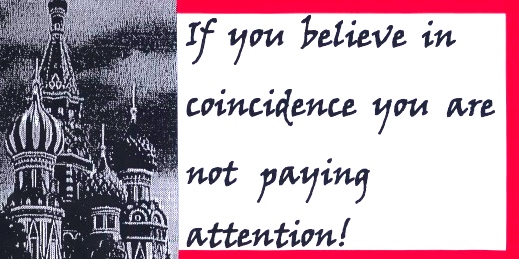
By Dan Peak
The Commoner Call (1/17/19)
Dear Fellow Readers,
It is now clear how Trump’s new Attorney General will deal with special counsel Robert Mueller and his Trump-Russia corruption investigation.
William Barr promises to allow Mueller to conclude his investigation. Barr also explains any report to Congress or the public will go through him. We’ll use his words to explain his views of “transparency”.
The Washington Post offers a succinct summary of remarks from the first day of hearings with Barr’s nomination: Power Up: Barr’s Testimony Sets The Stage For Future Fights Over Mueller Report.
The highlights to Barr’s testimony about Mueller are here:
1. He won’t fire Mueller without cause: Barr indicated in his opening statement that “he would allow Mueller, whom he called a longtime friend, to finish his work…Throughout the nine-hour hearing, Barr lavished praise on Mueller, noting that under the regulations he could fire the special counsel only for good cause, adding: ‘Frankly, it’s unimaginable to me that Bob would do anything that gave rise to good cause.’”
2. He didn’t commit to making public the entire report from the special counsel: “Barr said any report from Mueller would probably be treated like internal Justice Department prosecution memos that are kept secret,” The Post reports, straddling a fine line between transparency and confidentiality. “‘The rules I think say the special counsel will prepare a summary report on any prosecutive or declination decisions, and that shall be confidential and be treated as any other declination or prosecutive material within the department,’ Barr said. Declination memos are written by Justice Department officials when they decline to file charges against individuals, essentially ending an investigation.” Republicans and Democrats urged Barr to released the full final report to the public, but the nominee would only commit to being as transparent as regulations allowed.
Key: “A poll released last month found that 3 in 4 American adults believed the entire Mueller report should be made public. Two-thirds of Republicans agreed with that statement, while 9 in 10 Democrats agreed, according to the poll from NPR/“PBS NewsHour”/Marist.”
That’s it. We’ll see what we see based on how Barr chooses to handle the report. Barr was asked similar questions late in the day and his remarks are worth noting for additional color. From the Washington Post: Barr Fields Questions On Mueller Probe, Independence From Trump At Attorney General Confirmation Hearing.
5:55 p.m.: Barr reiterates that Mueller report might not be fully public
Near the end of the hearing, Barr drove home what might be the biggest revelation of the day: Mueller’s report might not be made public.
The statement came in response to questions from Sen. John Neely Kennedy (R-La.), who said he was still confused about Barr’s earlier testimony on the fate of the Mueller report. He hypothesized that Mueller had written a report and given it to Barr.
Under Justice Department rules, Kennedy asked, “What happens next?”
Barr responded: “Under the current rules, that report is supposed to be confidential and treated as the prosecution and declination documents in any other criminal case, and then the attorney general, as I understand the rules, would report to Congress about the conclusion of the investigation. And I believe there may be discretion there about what the attorney general can put in that report.”
“So you would make a report to Congress?” Kennedy asked.
“Yes,” Barr responded.
“Based on the report that you’ve received?” Kennedy asked.
“Yes,” Barr said.
The upshot is one that will probably worry Democrats: Barr had essentially suggested that Mueller’s findings would be filtered through the attorney general, who would decide what Congress and the public would — and would not — learn. Barr had previously promised that his goal would be transparency, though he seemed to be managing expectations about a full airing of Mueller’s findings.
Barr did offer that he would resign if he felt pressured to fire Mueller without cause to stop the investigation. There is of course far more to Barr’s appointment and his remarks. But we’ll stay narrowly between the guardrails.
*****
Epitaph
We’ll offer a single news update that highlights the importance of a Mueller Trump-Russia report. Last week the New York Times broke a story about the FBI opening a counter-espionage investigation over Trump and his ties to Russia. In true Nixonian “I am not a crook” fashion, Trump finally responded with “I never worked for Russia”:
“President Trump on Monday flatly denied that he worked for Russia, and he called FBI officials who launched a counterintelligence investigation to determine whether he did “known scoundrels” and “dirty cops.””
But the news continually undercuts any Trump denial – we’ve seen this repeatedly from “no meetings with Russians” which is now counting at 101 contacts and counting, every one of which was denied. Even Trump’s denials are just repetitive, he’s continually “insulted and disgusted” though the specifics don’t do well over time; consider, “I’m all over the world but we’re not involved in Russia”. Given his Moscow hotel deal that was alive up to the 2016 election how can we believe any denial?
But more broadly, given the New York Times news, there is this: Trump and Putin Have Met Five Times. What Was Said Is a Mystery.
“The first time they met was in Germany. President Trump took his interpreter’s notes afterward and ordered him not to disclose what he heard to anyone. Later that night, at a dinner, Mr. Trump pulled up a seat next to President Vladimir V. Putin to talk without any American witnesses at all.
“Their third encounter was in Vietnam when Mr. Trump seemed to take Mr. Putin’s word that he had not interfered in American elections. A formal summit meeting followed in Helsinki, Finland, where the two leaders kicked out everyone but the interpreters. Most recently, they chatted in Buenos Aires after Mr. Trump said they would not meet because of Russian aggression.
“Mr. Trump has adamantly insisted there was “no collusion” with Russia during his 2016 presidential campaign. But each of the five times he has met with Mr. Putin since taking office, he has fueled suspicions about their relationship. The unusually secretive way he has handled these meetings has left many in his own administration guessing what happened and piqued the interest of investigators.
““What’s disconcerting is the desire to hide information from your own team,” said Andrew S. Weiss, who was a Russia adviser to President Bill Clinton.”
Yep, not even Trump’s team knows what he’s discussed with Putin. There is outrage over the notion that Congress might resort to demanding notes or even interview an interpreter to Trump-Putin conversations. Even Russian state media Sputnik is concerned with the “ethics” of such actions.
*****
Really? Nothing to hide
Trump insists there is nothing to learn from his conversations with Putin; just like any other presidential conversation … nothing to hide.
Shouldn’t Trump then be the most vocal proponent for transparency?
If Trump were innocent why has he offered so many denials and lies only to see every one proven otherwise?
We are now down to a question of what level of transparency will be permitted by a now Trump attorney general.
There is a proven route for how to respond to a U.S. president who could be found to have committed treason. Whatever we learn, whatever actions are taken could well be in the hands of one person – William Barr.
*****
William Barr Under Oath

The Daily / The New York Times (1/16/19)
In a hearing before the Senate Judiciary Committee, William P. Barr, the nominee for attorney general, vowed to protect the Justice Department and seemed to tell senators what they wanted to hear. But was it what the president wanted to hear?
On today’s episode:
-
Michael S. Schmidt, who covers national security and federal investigations for The New York Times.

